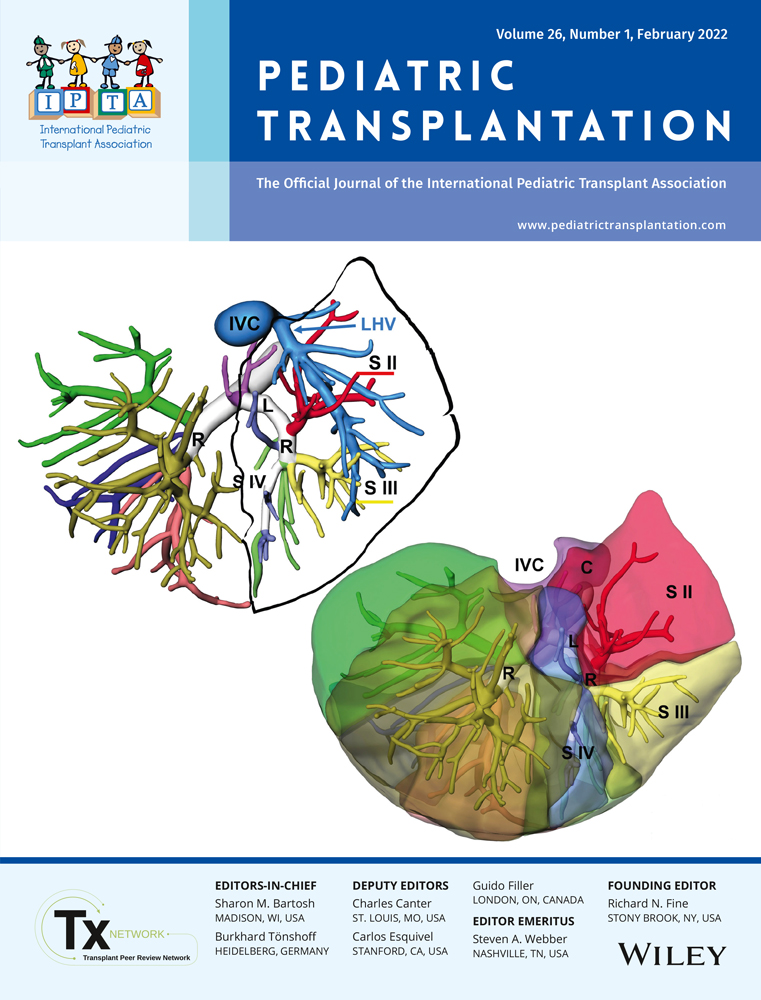Simultaneous pediatric heart-kidney transplant outcomes in the US: A-25 year National Cohort Study
Funding information
Dr. Dharnidharka reports grant support from the National Institutes of Health, RO1DK102981
Abstract
Background
Pediatric sHKTx remains uncommon in the US. We examined outcomes of pediatric sHKTx compared to PHTx alone. Our objective was to identify a threshold eGFR that justified pediatric sHKTx.
Methods
Data from the SRTR heart and kidney databases were used to identify 9245 PHTx, and 63 pediatric sHKTx performed between 1992 and 2017 (age ≤21 years).
Results
The median age for sHKTx was 16 years, and included 31 males (31/63 = 49%). Over half of sHKTx (36/63 = 57%) were performed in cases where pretransplant dialysis was initiated. Among patients who required pretransplant dialysis, the risk of death in sHKTx recipients was significantly lower than PHTx alone (sHKTx vs. PHTx: HR 0.4, 95% CI [0.2, 0.9], p = .01). In those without pretransplant dialysis, there was no improvement in survival between sHKTx and PHTx (p = .2). When stratified by eGFR, PHTx alone recipients had worse survival than sHKTx in the group with eGFR ≤35 ml/min/1.73 m2 (p = .04). The 1- and 5-year actuarial survival rates in pediatric sHKTx recipients were 87% and 81.5% respectively and was similar to isolated PHTx (p = .5). One-year rates of treated heart (11%) and kidney (7.9%) rejection were similar in sHKTx compared to PHTx alone (p = .7) and pediatric kidney transplant alone (p = .5) respectively.
Conclusion
Pediatric sHKTx should be considered in HTx candidates with kidney failure requiring dialysis or eGFR ≤35 ml/min/1.73 m2. The utility of sHKTx in cases of kidney failure not requiring dialysis warrants further study.
CONFLICT OF INTEREST
All the authors have approved the submission of this manuscript. We attest that we have fully disclosed financial or other relationships that could have construed as a conflict of interest.
Open Research
DATA AVAILABILITY STATEMENT
The data reported here have been supplied by the SRTR registry. The interpretation and reporting of these data are the responsibility of the author(s).




